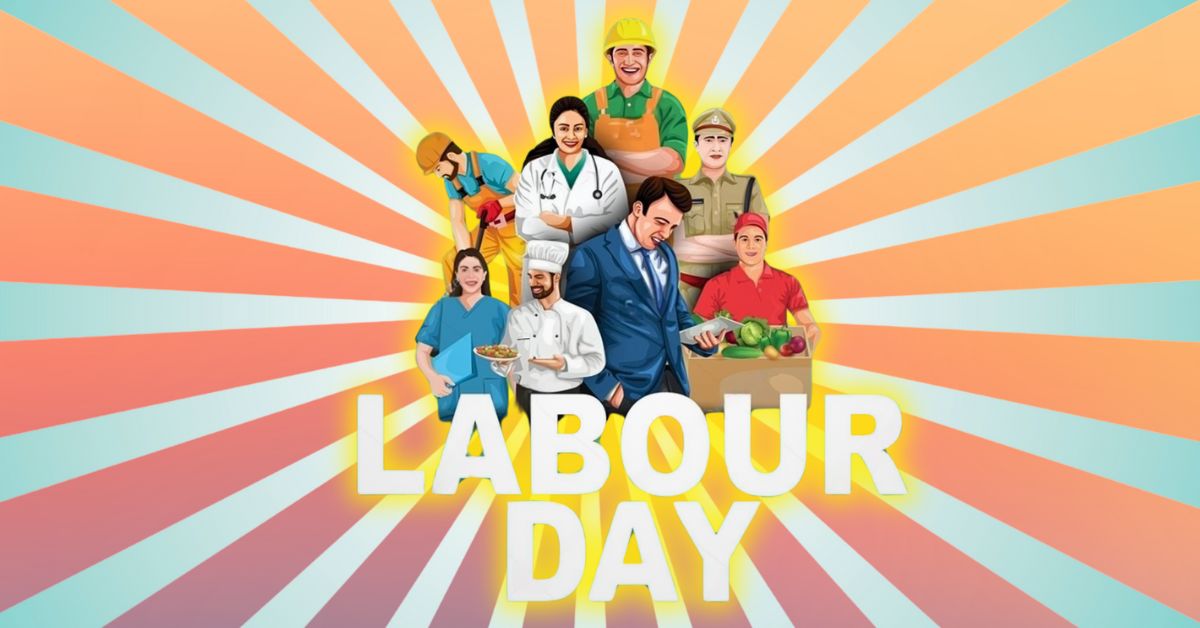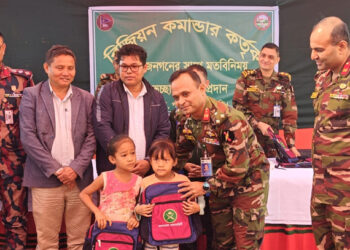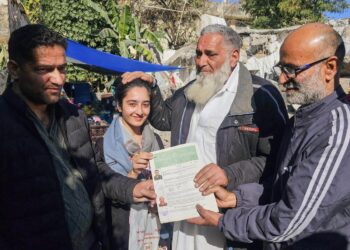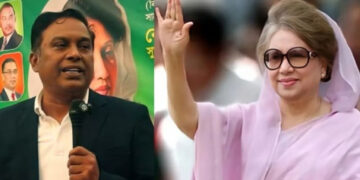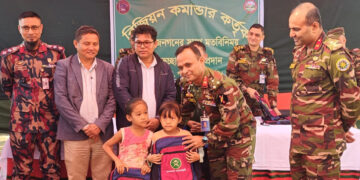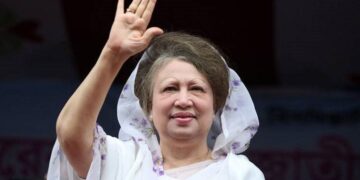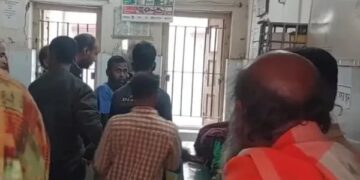May Day Reminds Us: Behind Every Development Lies the Unseen Labor of Our Workers
Like every year May Day arrives. International Workers Day or May Day, is celebrated across the world. But how much of it is truly a celebration of the workers? How much respect, justice, or dignity do they actually receive?
These questions shouldn’t just arise on May Day, they should stir our conscience every single day. And recently, when the Chief Advisor to the Government of Bangladesh said, “A new Bangladesh is not possible if workers remain in their previous condition,” the significance of this message became even greater. It is not just a statement it is a call for a shift in perspective, one that is deeply connected to the country’s future.
Workers: The Driving Force of the Economy
There’s a reality we often forget. Those of us who work in offices, run businesses, or live in tall buildings behind all of our comfort and progress are the silent labor, sweat, and sacrifices of our brothers and sisters who are workers.
Day after day, they toil under the scorching sun to build roads, work 12 to 14 hours in factories producing clothes for foreign brands, pull rickshaws, and construct the future of Bangladesh. Yet, these very workers continue to live in deprivation, neglect, and without their rightful access to dignity and rights.
Chief Advisor’s Statement: A Call of the Times
When the Chief Advisor said, “A new Bangladesh is not possible by keeping workers in their old conditions,” it was not merely a political statement. It was a powerful reflection of reality.
What does a “new Bangladesh” mean? Improved infrastructure, economic growth, technological advancement that none of these will matter if the lives of the 60% of the population engaged in labor-dependent professions do not improve.
If workers’ wages are not fair, if their housing is not safe, if their children’s education is not ensured, then this new Bangladesh will only exist on paper, not in reality.
Imagine a Bangladesh where the sweat, dreams, and labor of workers are respected. Where development is not reflected merely in luxury buildings or growth figures, but in the smiles of the working people. On May 1st, 2025, International Workers’ Day, the Chief Advisor of the interim government, Professor Dr. Muhammad Yunus, delivered just such a bold and timely message.
On Thursday 2025, at an event held at the Bangladesh-China Friendship Conference Center in Dhaka, commemorating both International Workers’ Day and National Occupational Health and Safety Day, Dr. Yunus spoke as the chief guest.
He stated:
“Improving the quality of life for workers is essential to realizing the dream of a Bangladesh free from inequality.”
This year’s theme for May Day was:
“Workers and employers united then we will build a new Bangladesh together.”
This theme harmoniously echoed every line of Dr. Yunus’s speech, reminding us of our collective responsibilities. He further said:
“During the students uprising, workers stood beside students and the masses. Now, we must ensure their proper involvement in the movement to build the nation.”
According to him, the uprising of students, workers, and people sparked a hope for a new Bangladesh. But this vision will never be realized if the workers remain stuck in their past conditions.
He added:
“Today’s slogan is highly significant for the sustainable development of our country.”
In this way he clearly set a direction for the future that country’s development cannot be imagined without workers.
May Day: Not Just a Holiday, But a Promise
Workers rights have been shaped in the light of history. Many of us see May Day merely as a public holiday. Some may not even know its history. It commemorates the movement in Chicago, USA, in 1886, where workers protested for an eight-hour workday. Thousands of workers shed their blood to build a more humane labor system.
Today, we may know that history but do we truly understand its meaning? May Day reminds us that the sweat of workers is the true capital of development. A nation moves forward only when its working class is protected, respected, and granted their rightful place in society.
Current Realities of Workers, The People Behind the Numbers
Bangladesh’s economy is largely dependent on labor. Around 4 million people are employed in the garment sector, 80% of whom are women. Millions of workers are also engaged in various other sectors such as construction, agriculture, transportation, electronics, and the tea industry, working every day.
Read More: BRAC University Rank Top Private Institution In Webometrics
But what is the reality of this work?
-
Working 8 to 12 hours a day, sometimes without any holidays
-
Low wages, and in many cases, not even the minimum wage is paid
-
Unsafe working environments, health hazards
-
Little to no special protection for female workers
-
Fear of losing jobs, limited freedom to form unions
In light of these issues, Yunus said:
“Workers and employers are complementary to each other. Based on mutual respect and cooperation, we can build a self-reliant and prosperous Bangladesh.”
New Bangladesh: Not Just Development, but Human Development
We often hear, “Bangladesh is moving forward.”
But the question is – where is it moving, and who is moving along?
If the fruits of development are only seen in the cars of the rich, the tall corporate buildings, or the balance sheets, then that is not the development of the people. Development requires manpower. For this, our labor community and their rightful rights must unite.
A New Bangladesh means:
-
Where workers are not just laborers, but respected employees
-
Where workers have the opportunity to become entrepreneurs
-
Where a safe working environment is ensured in factories
-
Where women receive maternity leave, healthcare, and safety
-
Where every worker is assured of a future for their children
Dr. Yunus says:
“To rebuild the country, we need to create an environment of unity, mutual respect, and trust between employers and workers.”
Labor Reform Commission and Roadmap Implementation
At the event, Dr. Yunus emphasized the importance of implementing the recommendations of the Labor Reform Commission. He said,
“First, we need to determine the actions to be taken and quickly move towards implementation, and gradually, each recommendation must be followed to the letter.”
Bangladesh is a signatory to the International Labour Organization (ILO) conventions. Therefore, the government is implementing a national roadmap. Which also includes a coordinated plan with the European Union.
This demonstrates that Bangladesh is committed to protecting workers’ rights, not only at the national level but also in line with international standards.
Workers Welfare: Some Practical Steps
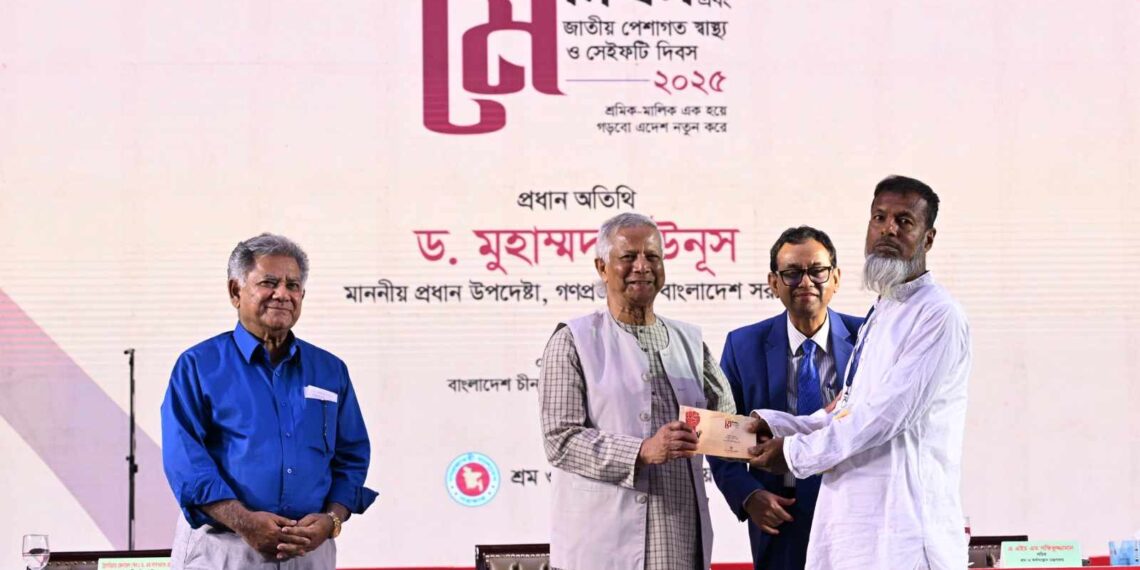
At the event, the Workers Welfare Foundation handed over by Yunus financial assistance checks to the families of five workers. This is a small yet significant step that highlights the sense of responsibility the government and leadership have towards society.
Speeches from Other Speakers: A Call for Unity
Other speakers at the event included:
-
Brigadier General (Retd.) Dr. M Sakhawat Hossain
-
Secretary A H M Shafiquzzaman
-
Chief of the Labor Reform Commission, Sultan Uddin Ahmed
They all emphasized the importance of improving the lives of workers and said that”Development is not possible without workers.” In a video message, Gilbert F. Houngbo, Director-General of the International Labour Organization, stated that “Protecting the safety and rights of workers in Bangladesh is part of an international commitment.”
Read More: Waste-to-Energy in Bangladesh: China’s Powerful Move to Build 42.5MW Green Power Plant
How Will This New Bangladesh Be Built?
We all dream of a new Bangladesh, but to build that new Bangladesh, we need to be cautious and fulfill our responsibilities. To build a truly humane and developed Bangladesh, we must take some urgent steps:
-
Ensure Fair Wages
Not just the minimum, but wages that are suitable for a decent standard of living must be guaranteed. -
Make Work Environments Safe
Safety must be ensured across all sectors—especially in garments, construction, agriculture, and factories. -
Training and Skill Development for Workers
Workers should not remain limited to just labor; they must be shown the path to becoming entrepreneurs. -
Special Protection for Female Workers
Childcare centers, maternity leave, and safe working conditions must be ensured for women. -
Freedom to Form Unions
Workers must have the right to freely form organizations so they can speak up for themselves.
Our Responsibility: You, Me, All of Us
Building a New Bangladesh is not just the job of policymakers. It is a responsibility we all share. Whether we are citizens, consumers, writers, students, or professionals—we must reflect on our own roles.
- Why do we want to buy clothes so cheaply?
- Why is it difficult to show respect to a domestic worker?
- Why do we find workers’ protests irritating?
These questions don’t just demand answers that they open the door to awareness.
Honoring the Spirit of May Day: Building a Just and Compassionate Bangladesh with Our Workers at the Heart
The hardworking laborers of Bangladesh are the true driving force behind our country’s growth and prosperity. Day and night, they dedicate themselves tirelessly in garments, agriculture, construction, and many other sectors.
Yet, they are often denied the respect, fair wages, and safe working conditions they rightfully deserve. If we truly want to build a new Bangladesh, we must begin by protecting the rights and dignity of our workers.
On May Day, we pause to recognize the sacrifices and hard work of our laborers, reminding ourselves that their contribution extends far beyond what meets the eye. A new Bangladesh isn’t just about highways, skyscrapers, or technology. It must also reflect values like humanity, justice, and equality.
Those of us in more privileged positions carry a responsibility. We must stand beside our workers, understand their struggles, and raise our voices for their fair treatment. Compassion must go beyond words. It must be seen in action.
We need to ensure proper healthcare, housing, education for their children, and social security for every laborer. Only by honoring their labor and improving their quality of life can we build a truly humane Bangladesh, where every person holds equal value and dignity.
To achieve such a vision, we must also change the way we think. Development should not just be measured in buildings and numbers but in how we treat people, especially those whose hands build the very foundations we stand on.
Laborers are not just a class. They are the backbone of our nation. Their sweat keeps our cities alive, our factories running, and our economy growing. And yet, too often, they remain invisible, their pain unheard.
As we celebrate May Day, it’s time we teach respect for labor from our schools and homes, nurturing a generation that values hard work and human dignity. The media, institutions, and government must shine a light on the real lives of workers, so that awareness grows.
A truly new Bangladesh will rise only when we look beyond our own comfort and think of the nation as a whole. Standing beside our workers, defending their rights, and building a brighter future for them—this is our shared duty. From this spirit of empathy and justice, a more compassionate, fair, and beautiful Bangladesh will be born with the very dream we all carry in our hearts.
Share via:

